- Home
- Mary Hooper
The Disgrace of Kitty Grey
The Disgrace of Kitty Grey Read online
Contents
Chapter One
Chapter Two
Chapter Three
Chapter Four
Chapter Five
Chapter Six
Chapter Seven
Chapter Eight
Chapter Nine
Chapter Ten
Chapter Eleven
Chapter Twelve
Chapter Thirteen
Chapter Fourteen
Chapter Fifteen
Chapter Sixteen
Chapter Seventeen
Chapter Eighteen
Chapter Nineteen
Chapter Twenty
Chapter Twenty-One
Chapter Twenty-Two
Chapter Twenty-Three
Chapter Twenty-Four
Chapter Twenty-Five
Chapter Twenty-Six
Chapter Twenty-Seven
What Happened Next
Some Historical Notes from the Author
Bibliography
Also by Mary Hooper
Chapter One
Suddenly nervous about why the two young ladies had asked to meet me in secret, I hurried through the kitchens, went up the servants’ stairs and stood waiting in the hallway between the drawing room and the front parlour, just as Miss Sophia and Miss Alice had requested.
I checked my nails, smoothed down my pinafore and sniffed. I was not used to being right inside the house and the air seemed to close about me stiflingly; an inside sort of air, stuffy and tickling my nose, a mixture of the previous night’s coal fires, the fibres of the thick wool carpets and the scent from the bowl of dried rose petals on the hall table.
I looked at my reflection in the glass of the nearest portrait and tucked a few wayward strands of hair under my cap. Lady Cecilia was known to be a stickler for cleanliness, especially in the dairy, and I couldn’t help but be worried that there had been a complaint against me. But then surely Milady would have asked Mrs Bonny, the housekeeper, to tick me off, rather than delegate the reprimand to Miss Sophia and Miss Alice, who (not just from my own observances but according to kitchen gossip) had little else in their heads but handsome young gentlemen, ballgowns and supper dances.
I sniffed again and wished for them to hurry themselves so that I might learn my fate, whatever that was. I gazed down the hall; from where I was standing I could see right up to the double front doors one way and back the other to the little room (I had heard Lady Cecilia call it a petit salon) where she took tea at precisely four o’clock every afternoon. All along the walls of the passageway, placed at the same distance from each other, were portraits of the family. These were mostly gloomy-brown old things, starting with Lord Baysmith the Army Major, stuffed into tight red dress uniform outside the salon door, down to Miss Sophia and Miss Alice (lighter, brighter) in blue dresses with white sashes. Directly opposite the Misses was an oil portrait of their older brother, the present Lord Baysmith’s son and heir, Peregrine, who was away at school.
I counted the portraits: fourteen in all, going back years and years and depicting all the notable Bridgeford Hall residents. There was, I knew, a much more recent portrait of the present Lord Baysmith with Lady Cecilia, dressed as if for a ball but, strangely, sitting under a tree on the estate with two enormous hunting dogs borrowed for the occasion. It had been painted, apparently, by someone very famous, and now hung over the fireplace in what they called the grand salon. I had only seen this painting a few times but I liked it very much, for in the background the sun could be seen glinting on the river, far away, and upon this river my sweetheart, Will, worked as a ferryman. The painting showed, faintly, a rowing boat with (I had convinced myself) a smudged representation of Will inside, his strong brown arms pulling at the oars.
I slipped into a little reverie, smiling to myself as I thought of Will. We had been walking out together secretly for some months now, and the time was coming when he must call on Mrs Bonny and Mr Griffin the butler with a request that we be allowed to see each other formally. This would mean that we could meet openly after church on a Sunday or, if the ferry business was quiet, stroll to the village on a summer’s evening. After we had been granted permission and walked out together for several years, we might be able to wed, providing my family were in agreement and we had somewhere to live. I was hoping that he might speak to Mrs Bonny soon – and I’d dropped plenty of hints that he should – but he was very much a waterman by trade and by type (that is, he did not give a stick for convention). Moreover, I was slightly worried that, not being aware of social pitfalls, he might say the wrong thing at the wrong time and spoil our chances.
Miss Sophia and Miss Alice suddenly came through the drawing-room door, giggling together. Miss Sophia looked at me, put her finger to her mouth to indicate I should not speak, then said in a low voice, ‘Is there anyone around, Kitty?’ (I should say here that although I was born Katherine, everyone in the house called me Kitty, as Katherine had been thought too much of a name for a milkmaid.)
I bobbed a curtsey. ‘No, miss. Everyone’s about their duties.’
‘I don’t mean servants! I mean family.’
I shook my head. ‘I haven’t seen anyone.’ How would I see anyone, I thought, unless they came into the dairy? ‘Your mother is still abed, I believe,’ I added. I knew this because I’d passed through the kitchens and heard one of the upstairs maids complaining that she couldn’t get into Milady’s room to lay the fire and it was going to set her back for the entire day.
‘Because we’ve got something secret to do,’ said Miss Sophia. ‘Something we want you to assist us with.’
I couldn’t help but be surprised at this, for unless they wanted to know how to churn butter or separate the whey, there was surely nothing in the world that I knew which they didn’t, what with their governesses and their riding master, their deportment lessons, their needlework and their art classes.
‘And you mustn’t tell a soul about it!’ Miss Alice said. ‘Unless you absolutely have to tell Mrs Bonny, that is.’
‘Nor would I, miss,’ I said earnestly (but not truthfully, for I was already concocting a story for the servants’ hall).
‘You know it is the first of May on Saturday . . .’ began Miss Sophia.
I nodded, for of course every last servant in the hall had been talking about this date, their afternoon off, where they were going and what they would wear.
‘Well, our mother is hosting a musical evening with poetry and so on, and Alice and I want to do something rather special.’ She began giggling again; she was a giddy goat, much worse than her sister.
‘Oh, honestly, Sophia!’ Miss Alice frowned at her. ‘Kitty, it is this: we are planning to present to the assembled company what is called a tableau vivant.’
I recognised that these were foreign words, for they were uttered in the strange way that Milady said petit salon, but they meant absolutely nothing to me.
‘Silly! She won’t understand that,’ said Miss Sophia. ‘Kitty, it means . . . it’s like a still life picture. Art come to life.’ She looked around the hall and pointed to an oil painting of an ancient Baysmith aunt handing a basket of provisions to a poor family, all of whom were looking up at her with grateful eyes. ‘We could replicate this painting, for example: all dress up in costume and take a part.’
‘But we won’t do that, because we want to be milkmaids!’ said Miss Alice.
‘We’ll be hidden behind screens, you see, frozen into graceful attitudes,’ Sophia went on, adopting a pose like a ballerina, ‘and then when the music finishes the screens will be taken away and everyone will be terribly surprised and applaud us.’
I did not ask the obvious question: Why? Why should anyone want to do such a thing?
&nb
sp; ‘It’s quite the latest fashion in London,’ said Miss Sophia, as if guessing my thoughts.
‘And we are keen that our guests should be charmed!’
‘It will be an excellent amusement.’
‘Yes, it will, miss,’ I lied, thinking that I had never heard anything so daft in all my life – barring when our chickens at home had lost their feathers and my ma had knitted them waistcoats.
‘And this is where you come in, Kitty,’ said Miss Alice. ‘We are going to present a tableau showing milkmaids in a pastoral setting. Miss Sophia and I are to play the two milkmaids, of course, and we are having new white muslin frocks run up by the dressmaker.’
‘With matching bonnets,’ added her sister.
‘Very nice, miss,’ I said, thinking that white muslin frocks would be completely foolish and impractical for a milkmaid and that the two young ladies would look much more realistic in brown cotton smocks. Maybe not quite so picturesque, though.
‘One of the gardeners is making us garlands of flowers to wear.’
I looked at them blankly.
‘They say that the milkmaids in London dance down the street garlanded with flowers!’ Miss Alice explained.
‘I see,’ I said. Miss Alice was a bit of a bookworm, so she was probably right. It seemed a strange thing to do, however, even in London. Were the cows in the procession, too? Did they go first or bring up the rear? Did the cows join in the dancing?
‘So, we intend to get into our places behind screens in the music room, and ask the musicians to finish their performance with something suitably pastoral,’ said Miss Sophia. ‘When the screens are removed there we will be, as pretty as a picture, with trees and flowers and perhaps a lamb or two.’
‘And milk churns and most definitely a cow, of course.’
‘A cow in the music room, miss?’ I asked incredulously.
‘Just one nice cow. A pretty one with long eyelashes. The reason we asked you here, Kitty, is we want you to choose one and prepare it –’
‘Train it,’ put in her sister.
‘And then bring it into the music room secretly, through the servants’ quarters.’
‘I see, miss,’ I said slowly, seeing the dangers in this undertaking. ‘But what do you think your parents . . . what do you think Lord and Lady Baysmith will have to say about it?’
‘Oh, Father will be charmed!’ said Miss Alice.
‘And everyone present will be so enthralled that our mother will end up being charmed, too,’ added Miss Sophia.
‘And will either of you be milking the cow?’ I asked. Tableau vivant, I said to myself, just in case I forgot the words. Tableau vivant.
‘Oh no!’ Miss Sophia said in horror. ‘I should be too frightened in case it kicked me.’
‘Certainly we will not milk it,’ added Miss Alice. ‘We just intend to stand there looking quaint under a bower.’
‘The gentlemen will love it!’ cried Miss Sophia. She smiled at me. ‘So if you would begin preparing the cow, Kitty. Perhaps you can get it used to standing about and walking to heel and so on.’
‘And wearing ribbands and flowers!’
‘I don’t know if . . .’
Both young ladies looked at me keenly.
‘We are relying on you, Kitty, to help make the evening a memorable one. There will be certain young gentlemen in the audience who we are hoping to impress,’ said Miss Alice.
I bobbed a curtsey. ‘I’ll do my best, miss,’ I said, thinking that on this occasion my best probably wouldn’t be nearly good enough.
Chapter Two
Mrs Bonny came into the dairy later that afternoon to check that everything was scoured and spotless for the second milking. It was, of course, for I loved my job and did it meticulously, knowing that I was very lucky to be working at Bridgeford Hall. This employment had come about because my ma was of an age with Mrs Bonny; they’d gone to dame school together and learned their alphabet from the same primer.
At home Ma had taught me how to look after the chickens and the family cow and make butter and so on, and when I was coming up to eleven years old and looking for a position, had had the idea of sending me to Mrs Bonny with a note saying she would be pleased to renew their acquaintance and recommending me as reliable and sensible. I had started off at the hall as a kitchenmaid, helping the elderly dairymaid who’d been there, and when she left I happily took over her position.
The dairy at Bridgeford Hall was called by Lord Baysmith a model dairy. That was not to say that it was in miniature, but was an ideal model upon which other dairies should be based. Milord owned three great swathes of land given over to dairy farming, but my little dairy was attached to the big house, and the milk and its products (cream, butter and cheeses) from its cows were made only for the inhabitants of the household. Twice every day I washed the floor, scrubbed the marble worktops, scoured the pails and scalded and aired the pans, and when I’d milked the cows I was free to make any other dairy products needed that day.
The dairy was a round room next to the kitchens but separated from it by an airy walkway which led on to a cheese-making room and then on to a small milking parlour with stalls for four cows. The dairy, to my mind, was the nicest part of the whole house, for it had blue-veined marble worktops, white porcelain tiles, bunches of fresh mint and thyme to discourage the flies, and little water fountains to cool the air in summer and keep everything fresh. It was separate from the dairy farm next door – that big, smelly, muddy affair with lines of milking sheds – but if there was a special happening at Bridgeford, a ball or great dinner, then we would go next door in order to obtain enough cream for our flummeries and fools.
My cows were four lovely South Devons who lived in the fields just outside and got brought into the milking parlour twice a day. I thought of them as being amongst the most fortunate of animals, for they had several small pastures which they visited in rotation and, if they wished, could feed all day on lush grass and clover. They had a much better time of it than the herds of ordinary black-and-white Friesians at the big farm who gnawed the grass in their paddock until ’twas almost bald and then trampled the ground to slush. Beside them, my South Devons were very handsome beasts, more docile, and seemed to have nicer habits. They were the colour of the rich red soil and named Daisy, Buttercup, Clover and Rose. They were let out to run with a bull of the same breed once a year, after which they sometimes went into calf. Their calves usually joined the big herd, and Daisy or whoever would come back to give milk for another year. There were always four cows and they always took these names and, when one went to slaughter, another took its place. I loved them dearly but didn’t weep when I lost one, because I knew I’d get just as attached to the next in line, and that that was the way of the world.
I thought it best to tell Mrs Bonny that I would not be in the dairy very much that afternoon. ‘I have to take one of the cows for a walk,’ I explained, hiding a smile.
‘Yes, and after that I suppose you’ll take one of the sheep for a ride in the carriage,’ she replied sharply.
‘No. Really, Mrs Bonny. I saw Miss Alice and Miss Sophia earlier and they said . . .’ I lowered my voice and whispered the rest, and when I got to the tableau vivant business I hoped she wouldn’t know what it meant so I could have the pleasure of explaining the term to her, but she did.
‘Attitudes!’ she said. ‘Young women standing about pretending to be paintings or acting out lines of poesy. Heavens above! I didn’t think it would ever reach Devonshire.’
I nodded. ‘I have to get a cow used to obeying instructions, and on the first of May it has to be taken into the music room and hidden behind a screen.’
‘Whatever will Society think of next?’ Mrs Bonny flapped her hands in the air as if trying to dispel the very idea of a cow. ‘I don’t want to know. You must do what the young ladies ask – but don’t tell me about it. If Lady Cecilia asks questions afterwards I want to be able to say that I knew nothing.’
‘So, may I go now a
nd begin its . . . training?’
She gave a nod, then changed it to a shake of her head. ‘Oh, I don’t know, I’m sure.’
I went.
Agreeable though my work was, I was also very happy to have a reason for escaping it and taking a walk with one of the cows, for that gave me the perfect excuse to go down to the river and see Will.
He laughed to see me leading Daisy on a rope, but looked almost indignant when I told him the reason for it and the lengths the Misses were going to for a few minutes’ entertainment.
‘ ’Tis called a . . . a tableau vivant,’ I said carefully, trying to remember the shape Miss Alice’s lips had made when she’d said those words.
‘No matter what they call it, ’tis not right. Your young ladies are to have gowns and bonnets made especially to play-act? Not to keep them warm or dry, but to wear for only a few minutes and then discard?’
I found myself defending them. ‘If they wish to, why not? They are a wealthy family and may surely do whatever they like with their money.’
‘But is it proper that they should scatter it on frivolities when so many are starving?’
‘The dressmaker will be pleased; she’ll profit from it,’ I pointed out. ‘And the draper and milliner.’
It was very like Will to wax indignant like this. He’d not had an easy life, I knew; he’d helped his father on the ferry since he was nine or ten, but when he was fourteen his father had died, leaving him in charge of both the rowing boat and his youngest sister, Betsy (for his ma had died in childbed). Betsy had gone to live with their older sister, Kate, and Will had come to live in the ferryman’s shelter at the river’s edge. His new home was little more than a few planks of wood, chill and bare, but it meant he was always there, ready and available to ferry people across the river for a penny each way.
Just then, protesting about the Misses’ gowns, he looked so handsome, with his eyes so blue in his tanned-by-the-wind face, that I could not help but smile at him.
‘Don’t let’s argue,’ I said. ‘I see little enough of you that we should have cross words about something so silly – something that is nothing to do with either of us but only concerns lords and ladies.’

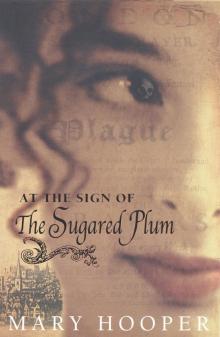 At the Sign of the Sugared Plum
At the Sign of the Sugared Plum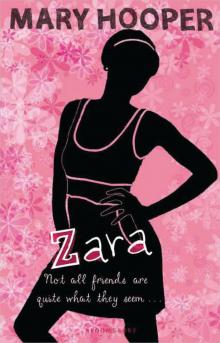 Zara
Zara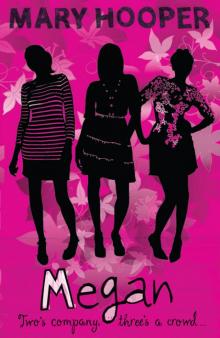 Megan 3
Megan 3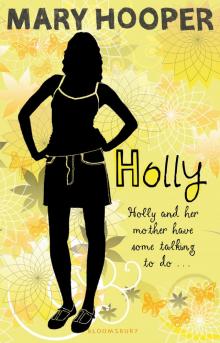 Holly
Holly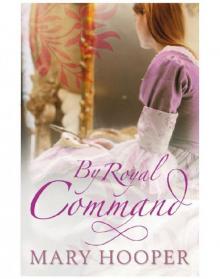 By Royal Command
By Royal Command Newes from the Dead
Newes from the Dead Amy
Amy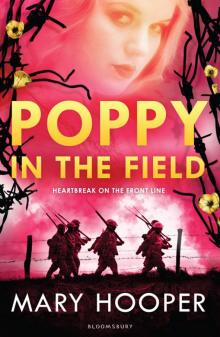 Poppy in the Field
Poppy in the Field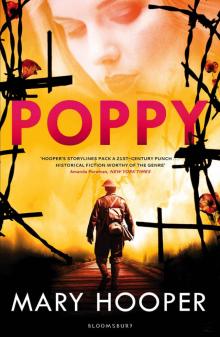 Poppy
Poppy Velvet
Velvet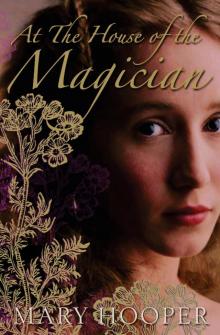 At the House of the Magician
At the House of the Magician The Remarkable Life and Times of Eliza Rose
The Remarkable Life and Times of Eliza Rose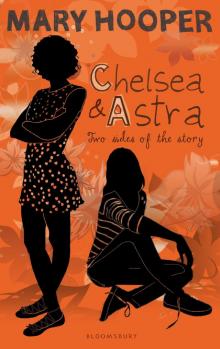 Chelsea and Astra
Chelsea and Astra The Betrayal
The Betrayal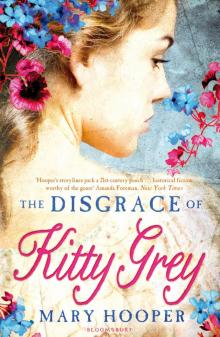 The Disgrace of Kitty Grey
The Disgrace of Kitty Grey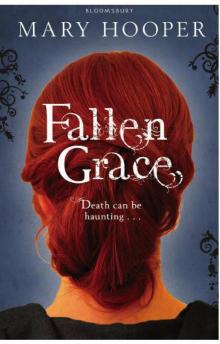 Fallen Grace
Fallen Grace